Here's the data definition of a family tree (FT) from How To Design Programs
(define-struct no-parent [])
(define-struct child [father mother name date eyes])
(define NP (make-no-parent))
; An FT is one of:
; – NP
; – (make-child FT FT String N String)
; Oldest Generation:
(define Carl (make-child NP NP "Carl" 1926 "green"))
(define Bettina (make-child NP NP "Bettina" 1926 "green"))
; Middle Generation:
(define Adam (make-child Carl Bettina "Adam" 1950 "hazel"))
(define Dave (make-child Carl Bettina "Dave" 1955 "black"))
(define Eva (make-child Carl Bettina "Eva" 1965 "blue"))
(define Fred (make-child NP NP "Fred" 1966 "pink"))
; Youngest Generation:
(define Gustav (make-child Fred Eva "Gustav" 1988 "brown"))
I designed a function to count all the persons in a particular family tree.
The function consumes a family tree and counts the child structures in the tree by simply recurring on each parent and adding 1 to combine the function call on both the parents and returning 0 if there for no-parent
;; FT -> Natural
;; counts the child structures in an-ftree
(define (count-persons an-ftree)
(cond
[(no-parent? an-ftree) 0]
[else (+ 1 (count-persons (child-father an-ftree))
(count-persons (child-mother an-ftree)))]))
My function - when launched on Gustav - counted Fred and Eva, then Eva's parents Carl and Betrtina. It didn't reach Adam and Dave.
(check-expect (count-persons Dave) 3) ✓
(check-expect (count-persons Gustav) 7) ✗ (it's 5)
How can I (if I want to count ALL ancestors, including uncles) reach Adam and Dave when I call my function on Gustav?
tl;dr
Essentially how can traverse through all generations above? How can I get access to 'Dave' from 'Gustav' (there is no reference to them!). How to count ALL ancestors, not just parents, then their parents, and so on.


